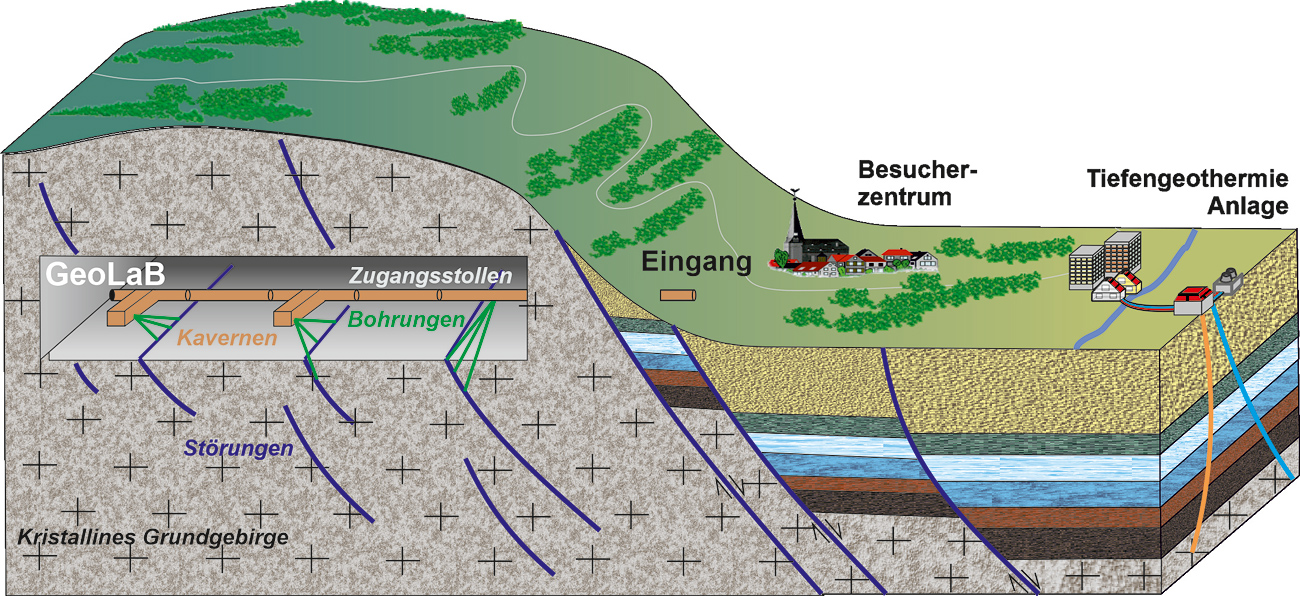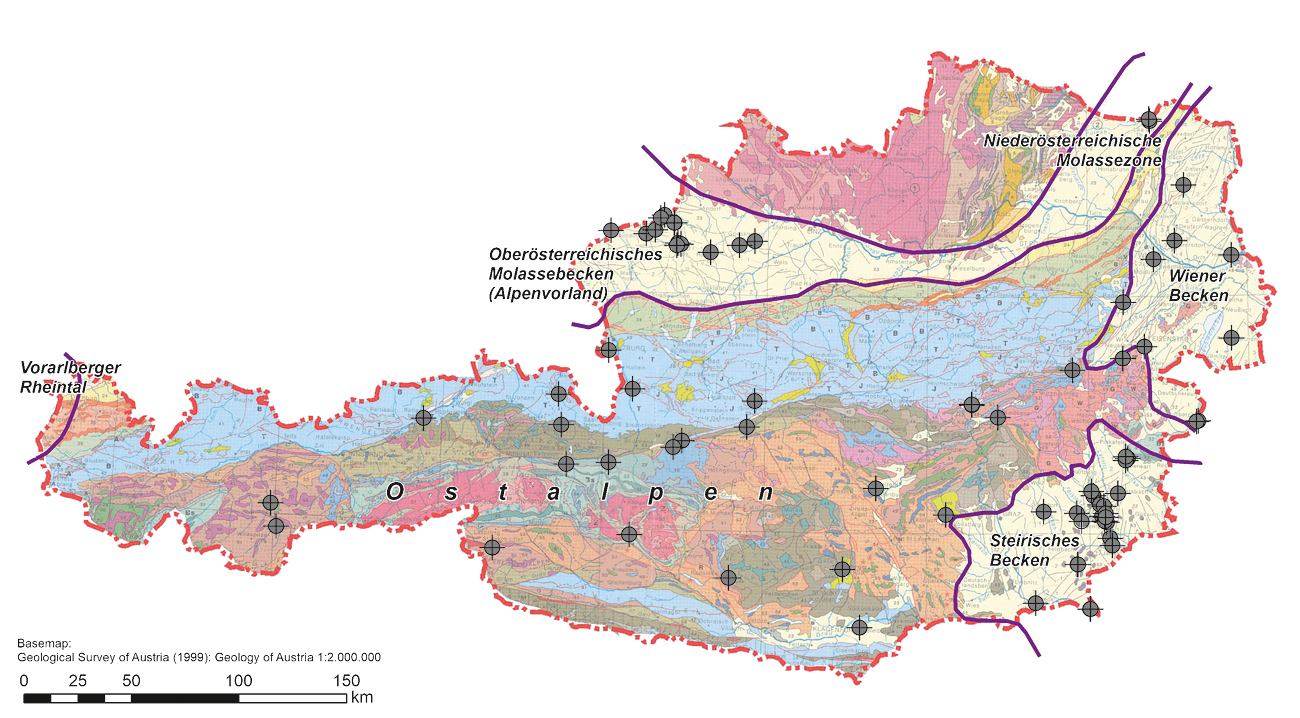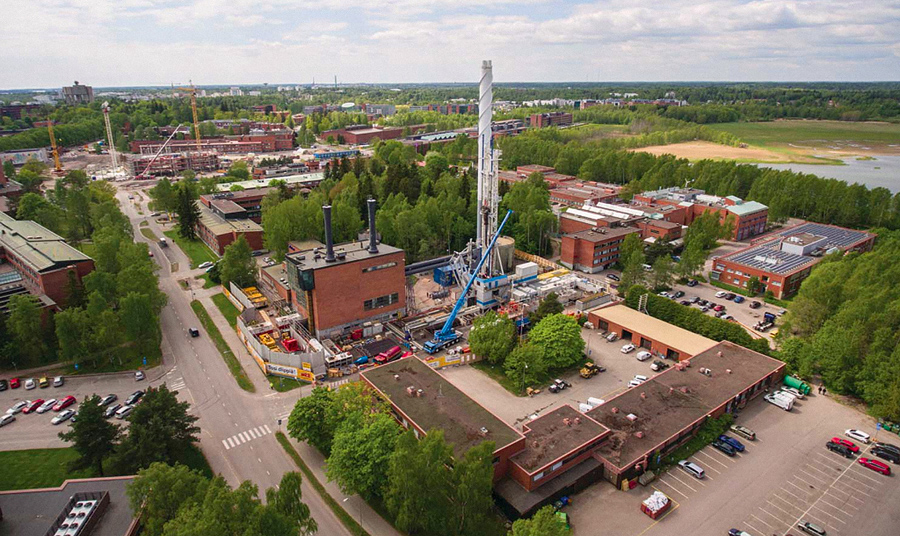The closure of the German coal mining industry at the end of 2018, along with the recent announcement that the country is to decommission all its coal-burning power plants by 2038, will pose major challenges for the regions and industries affected. Energy sources, technologies and even job markets are all set to undergo radical change. And this is our cue to look at how renewable geothermal energy – which in a broader sense means borehole mining – can play its part in making a success of the energy transition process. This issue will therefore be focusing on deep geothermal projects, in other words …Read more
With my best regards // Mit freundlichem Glückauf
Dipl.-Ing. Andreas-Peter Sitte
Chief Editor Mining Report Glückauf, Essen
Thermal Energy Transition with Geothermal Energy: From Coal Mining to Heat Mining
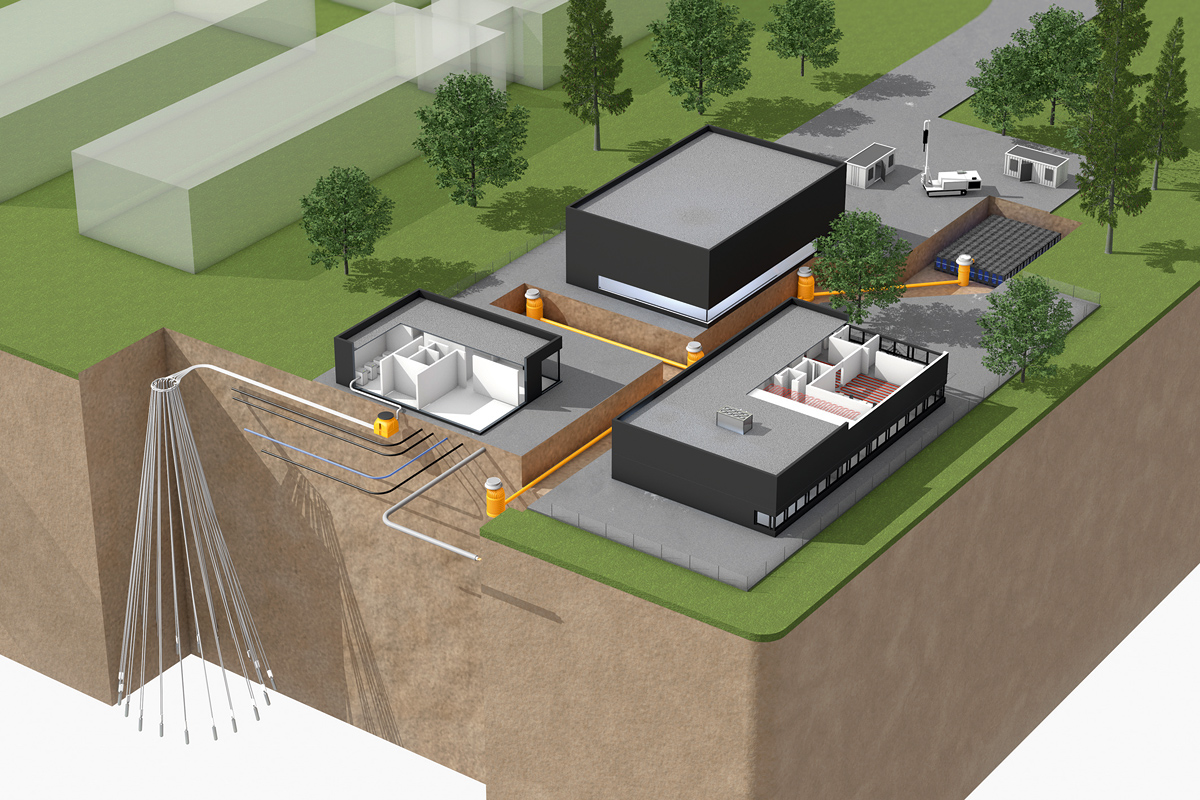
Fraunhofer IEG is setting a good example at its location in Bochum, which it has developed with shallow geothermal energy which covers its heating and cooling requirements. In the future, it wants to explore the potential for deep geothermal energy in the TRUDI demonstrator. Source: Fraunhofer IEG
Author: Prof. Dr. Rolf Bracke, Leiter der Fraunhofer-Einrichtung für Energieinfrastrukturen und Geothermie (Fraunhofer IEG) und Professor an der Ruhr-Universität Bochum, Bochum/Germany
Read moreGeoLaB – The Geoscientific Future Project for Germany
Geothermal energy can play an important role in the decarbonization of the German energy system. In order to make the great potential of geothermal energy in the crystalline basement economically viable, measures are taken to enhance existing permeable structures. However, a prerequisite for the public acceptance of such Enhanced Geothermal Systems (EGS) is the minimization of possible induced seismicity. Their control can only be based on an understanding of the processes and interactions of the fluid with the reservoir. With the generic underground laboratory GeoLaB (Geothermal Laboratory in the Crystalline Basement), fundamental questions of reservoir technology and borehole safety of EGS are to be investigated. The planned experiments will significantly improve our understanding of the relevant processes in the …Authors: Dr. Katharina Schätzler, Dr. Judith Bremer, Prof. Dr. Eva Schill und Prof. Dr. Thomas Kohl, Karlsruher Institut für Technologie (KIT), Karlsruhe, Prof. Dr. Michael Kühn, Deutsches GeoForschungsZentrum, Potsdam, Prof. Dr. Olaf Kolditz, Helmholtz-Zentrum für Umweltforschung, Leipzig, Prof. Dr. Ingo Sass, Technische Universität (TU) Darmstadt, Darmstadt/Germany
Read moreRenewable Geothermal Energy – Latest Developments in Geothermics in North Rhine-Westphalia: New Finds. New Projects. New Research Facilities.
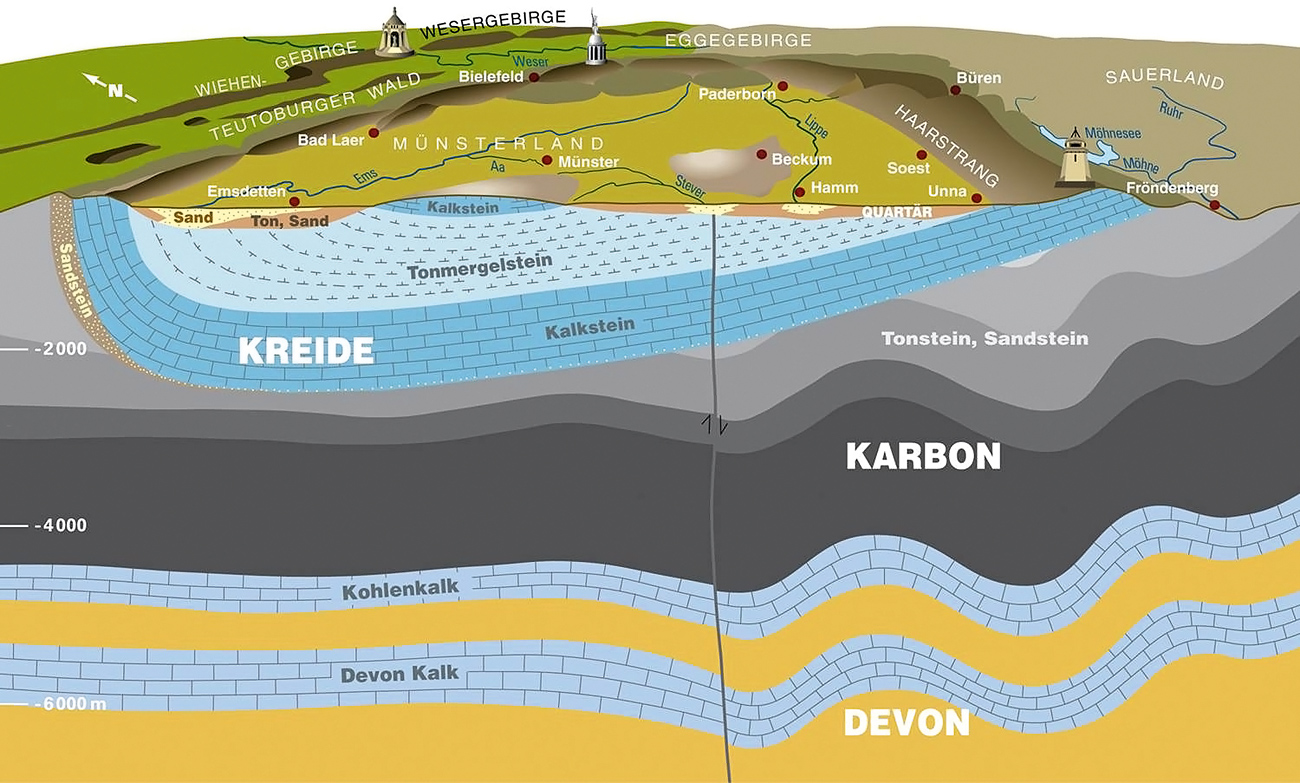
Schematic representation of the hydrothermal reservoirs of North Rhine-Westphalia contained within the limestone deposits. Source: GD NRW
Author: AdB Dipl.-Ing. Ernst-Günter Weiß (BD), Dezernat 62, Bezirksregierung Arnsberg, Dortmund/Germany
Read moreGeothermal Energy Utilisation in Austria
By late 2020 a total of 77 deep geothermal wells had been drilled within the territory of Austria, representing a cumulative length of some 135 km. About two thirds of this figure, both in terms of number and cumulative length, comprised boreholes sunk in sedimentary basins, while the remainder were drilled in the Eastern Alpine units and consisted exclusively of wells intended for balneology and spa tourism. At the end of 2019 the installed capacity of deep geothermal systems amounted to 95 MW, to which can be added an estimated 10 MW for balneological systems. This total output of around 105 MW represents about one tenth …Author: Univ.-Prof. Dr. Johann Goldbrunner, Managing Director Geoteam Ges.m.b.H., Graz/Austria
Read moreThe Impact of Geothermal Energy on Natural Gas Production
Natural gas is besides from crude oil and coal one of the most important energy resources. However, during the depletion of a reservoir, the occurrence of liquids, e. g., water, condensates, is a well known phenomenon worldwide. Depending on the gas composition and the physical boundary conditions (pressure, temperature), water and/or condensate can precipitate out of the gas stream as the gas cools down and liquid loading of the well occurs when the gas flow is lower than a critical velocity. In order to optimise the gas production and for better understanding the liquid loading problem, a method has been developed that enables the simulation of the fluid temperature …Authors: Dipl.-Ing. Rudolf K. Fruhwirth, Prof. Dr. Herbert Hofstätter, Dr. mont. Clemens Langbauer, Gernot Schwaiger M. Sc., Chair of Petroleum and Geothermal Energy Recovery, Montanuniversitaet Leoben, Leoben/Austria
Read moreThe Innova Rig 418 Deep Drilling Rig – A Successful Model for Producing Geothermal Wells?
The aim of this article is to provide an overview of the main stations of the Innova Rig Terra Invader 418 drilling rig from Herrenknecht Vertical GmbH, Schwanau/Germany, and its positioning on the national and international geothermal market since it was launched. The main features, advantages and benefits of the drilling rig are discussed, such as, e. g., sound protection during operation incorporated into the design, “hands free” technology, the small footprint as an important factor for …Author: Dipl.-Ing. (FH) Berthold Kibellus, Bereichsleiter Tiefbohrungen, H. Anger’s Söhne Bohr- und Brunnenbauges. mbH, Hessisch Lichtenau/Germany
Read moreThe Current Legal Framework for Geothermal Drilling
Geothermy is a raw materials production process and therefore it has a close association with mining law, unless the activity in question is strictly property related. However, even in this latter case mining regulations will take effect if the drilling extends to a depth of more than 100 m. A general operating plan is not in fact required in this instance and a main operating plan is deemed to be sufficient, this is to be accompanied by special operating plans if further drilling is to be carried out. Mining subsidence liability is not explicitly prescribed …Author: Prof. Dr. Walter Frenz, Maître en Droit Public, Lehr- und Forschungsgebiet Berg, Umwelt- und Europarecht (BUR), RWTH Aachen University, Aachen/Germany
Read moreAcceptance of Deep Geothermal Energy – Communication as Crucial Factor
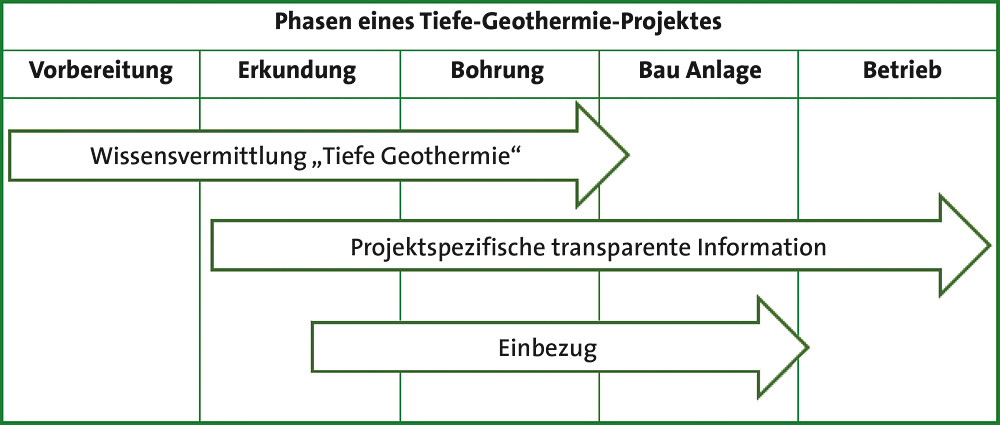
Communication during project phases (Borg, A.; Bauer, M.: Tiger-Kommunikationskonzept tiefe Geothermie. Berlin, Heidelberg; Springer (2017)).
Author: Dipl.-Psych. Anna Borg, CBM GmbH, Bexbach/Germany
Read moreOpinion Leaders in the Digital Age – Social Network Analysis for Renewable Energies on Twitter
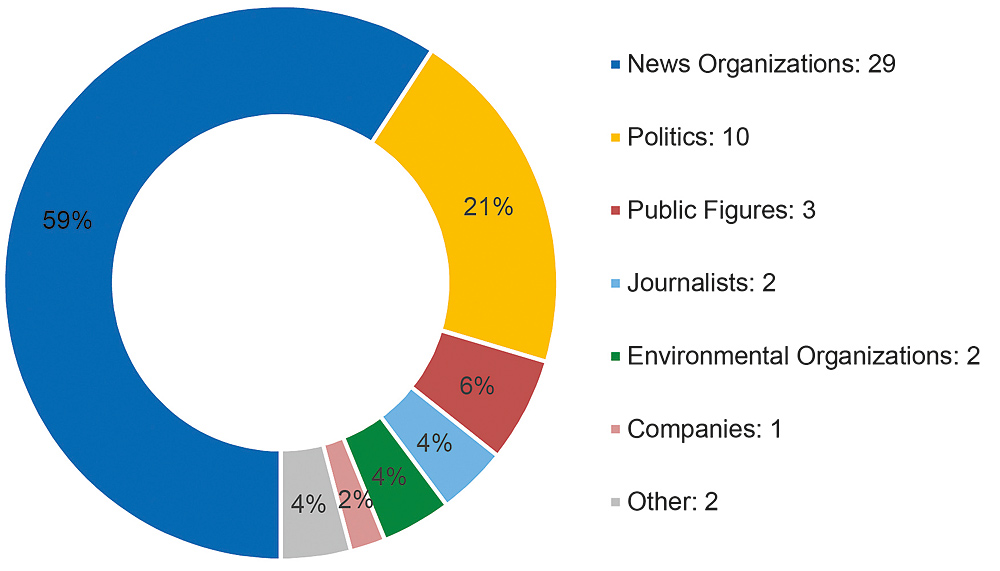
Domains of the 50 accounts with the highest followership (relative and absolute values). Source: Hochschule Mittweida
Authors: Stefanie Walter M.Eng./M.A., Kai-Jannis Hanke B.Sc., Mittweida University of Applied Sciences, Mittweida/Germany
Read more




















